Obstetric Fistula : Preventing, Repairing A Hitherto Taboo Condition
- Par Kimeng Hilton
- 28 Jun 2023 04:52
- 0 Likes
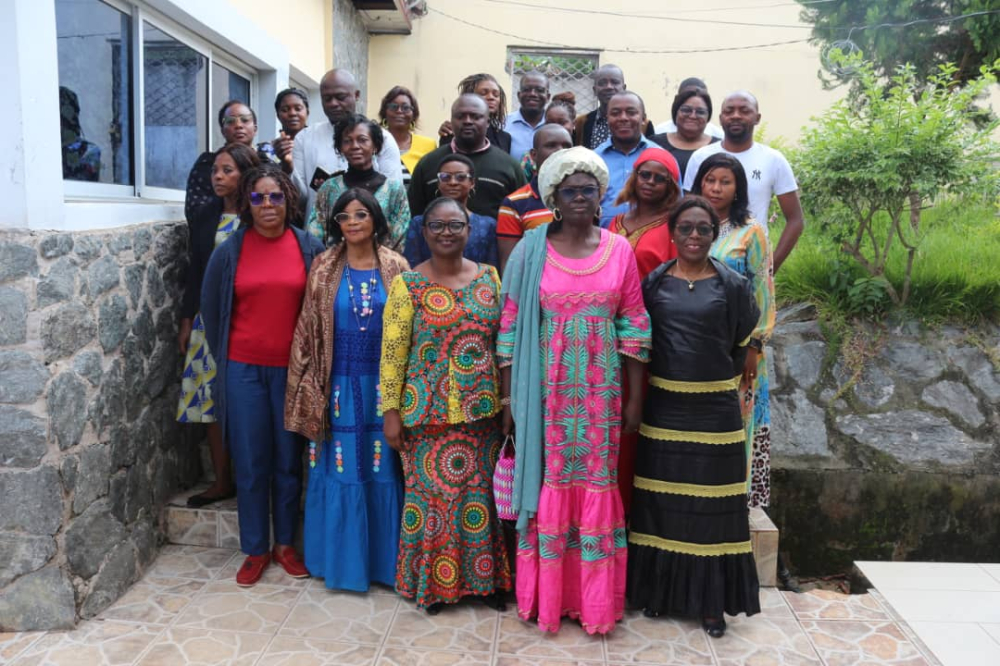
The Ministry of Women’s Empowerment and Family on June 27, 2023 organised a briefing session for journalists. Which also discussed good health and nutrition practices, and child development counsel.
According to a 2016 survey carried out by the Ministry of Women’s Empowerment and Family, Cameroon today has about 20,000 cases of obstetric fistula. The condition is caused by early marriage and pregnancy, and crude or unauthorised abortion and its destructive effect. As well as Female Genital Mutilation.
An Embarrassing, Smelly Condition
Also known as Vesico-vaginal Fistula, VVF, it is an abnormal opening that develops between the bladder and the wall of the vagina. The result is that urine and faceces leaks, sometimes lightly, but it can be steady if the fistula is large. In addition to being a serious medical problem, this condition is very upsetting. The leakage is embarrassing and can smell bad.
Elimination By 2030
Obstetric fistula usually sets in a few days after a woman undergoes delivery with complications. Which results in passing out urine and stool unconsciously because of tear in the system. Meanwhile, Cameroon’s goal is to eliminate obstetric fistula by 2030. It is for this reason that the Ministry of Women’s Empowerment and Family, MINPROFF on Tuesday, June 27, 2023 in Mbalmayo on the outskirts of Yaounde, organised a debriefing session for journalists on Obstetric Fistula or Vesico-Vaginal Fistula, VVF, and Essential Family Practices.
The training was part of efforts to improve reproductive health indicators amongst women, adolescents and girls. It was jointly moderated by Mrs. Maipa Wespa epouse Koukreo, Inspector No. 2 in MINPROFF and Mrs. Francisca Moto, a director in MINPROFF. The facilitators were Mrs Grace Edwige Mbakop, Head of Communication, MINPROFF, Mr. Nitiga Placide of MINPROFF and Dr Mouliom Jiosap Narcisse of the Ministry of Public Health.
For Referrals Only!
Organisers of the debriefing clarified that the incidence of obstetric fistula in the country will be greatly reduced if women gave birth in good health facilities. “Do not embark on long trips without being referred to specialist hospitals to deliver, neglecting the local health facility where you did antenatal clinic all through. Specialist hospitals are there for referred, complicated cases. The time an unreferred woman in labour wastes waiting to be attended to in a specialist hospital can be fatal to her unborn baby and own life. This is unnecessary!” the warning note was sounded.
Inadequate Capacity For Reintegration
According Dr Mouliom, the national capacity for preventing Obstetric Fistula is 61 per cent. However, the national capacity for the socio-economic reintegration of obstetric fistula victims is insufficient due to inadequate funding. “So far, communication on the issue has been weak,” he noted.
Maroua Treatment Centre Imminent
Nevertheless, partnerships exist between the Ministry of Public Health and the United Nations Population Fund, UNFPA, MINPROFF, etc to fight the health challenge. Also, challenges exist in the care of victims, so also is counselling, community follow-up, etc. Meanwhile, in partnership with UNFPA, an obstetric fistula treatment centre is under construction in the Maroua Regional Hospital in the Far North Region. It is known as the “Micro Takaful” project.
Community, Opinion Leaders Needed Onboard
In fighting obstetric fistula, the place of communities, opinion leaders, the civil society, and professional associations, cannot be underestimated, Dr Mouliom stressed. Because of the key role they play in the implementation of the national strategic plan to fight obstetric fistula. However, challenges to the successful implementation of the strategy persist. These include difficulty in locating obstetric fistula victims. Because they tend to live in seclusion, and are so mobile.
Armed Conflict, Rising North West Cases
Contrary to previous estimations, Dr Mouliom said, there is a high incidence of VVF in the North West Region as a result of the ongoing armed conflict. For example, a surgery or repair campaign was recently organised in the Bamenda Regional Hospital for 10 victims. But the organisers discovered more than 20 cases upon arrival!
Speedbrakes To National Strategy
Other challenges of the national strategic plan against VVF include insufficient human resources and the instability or career mobility of trained health personnel. Dr Mouliom promised the Ministry of Public Health will continue the obstetric fistula elimination advocacy with partners, training, look out for cases to carry out repairs, equip health facilities and step up awareness in communities.
Secrecy Of Condition, Surgery Requests
The medical doctor disclosed that there are many obstetric fistula victims in the country who are able to hide their condition for long because they have the means. Some of them sponsor their own repair operations with...
Cet article complet est réservé aux abonnés
Déjà abonné ? Identifiez-vous >
Accédez en illimité à Cameroon Tribune Digital à partir de 26250 FCFA
Je M'abonne1 minute suffit pour vous abonner à Cameroon Tribune Digital !
- Votre numéro spécial cameroon-tribune en version numérique
- Des encarts
- Des appels d'offres exclusives
- D'avant-première (accès 24h avant la publication)
- Des éditions consultables sur tous supports (smartphone, tablettes, PC)






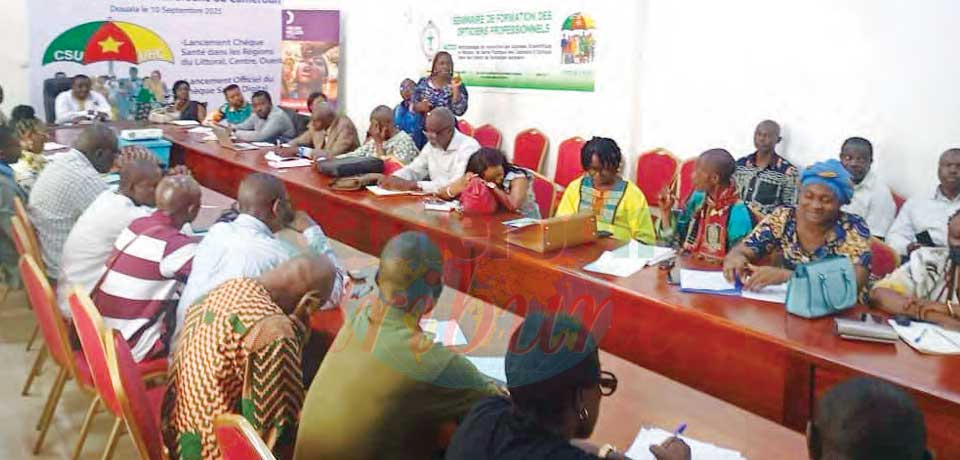
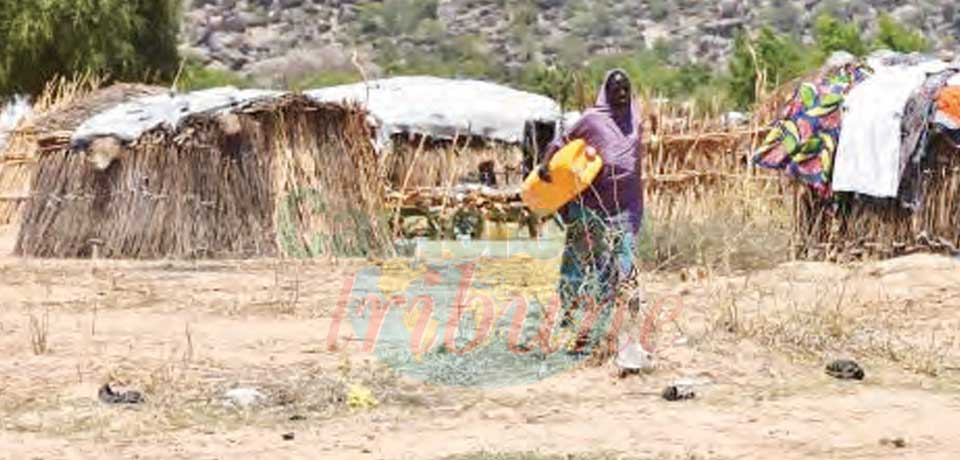
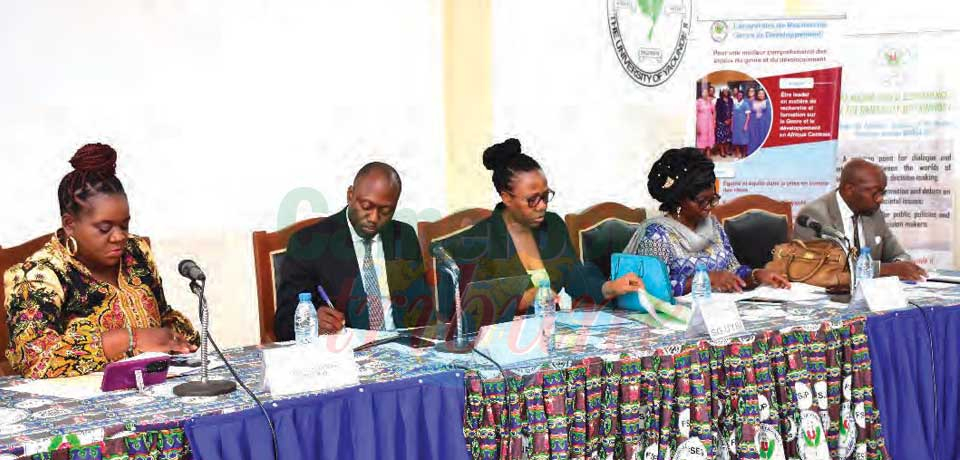
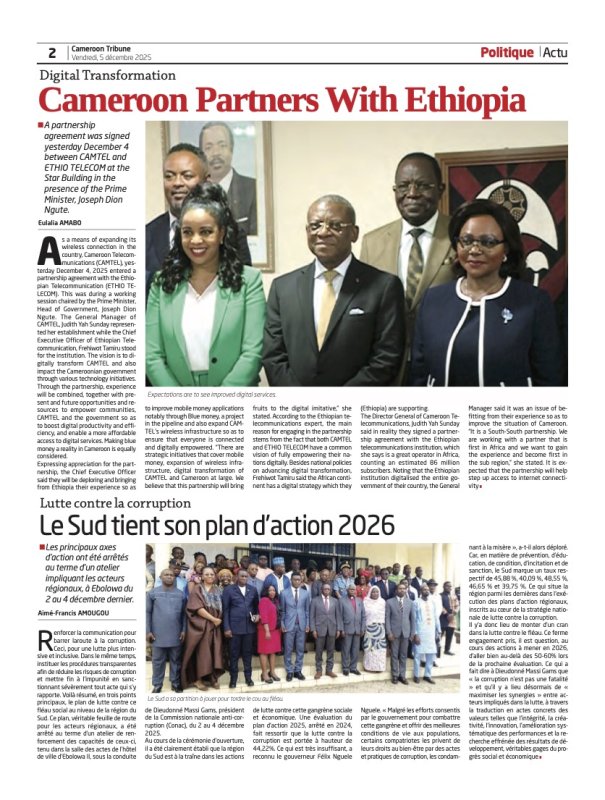




Commentaires